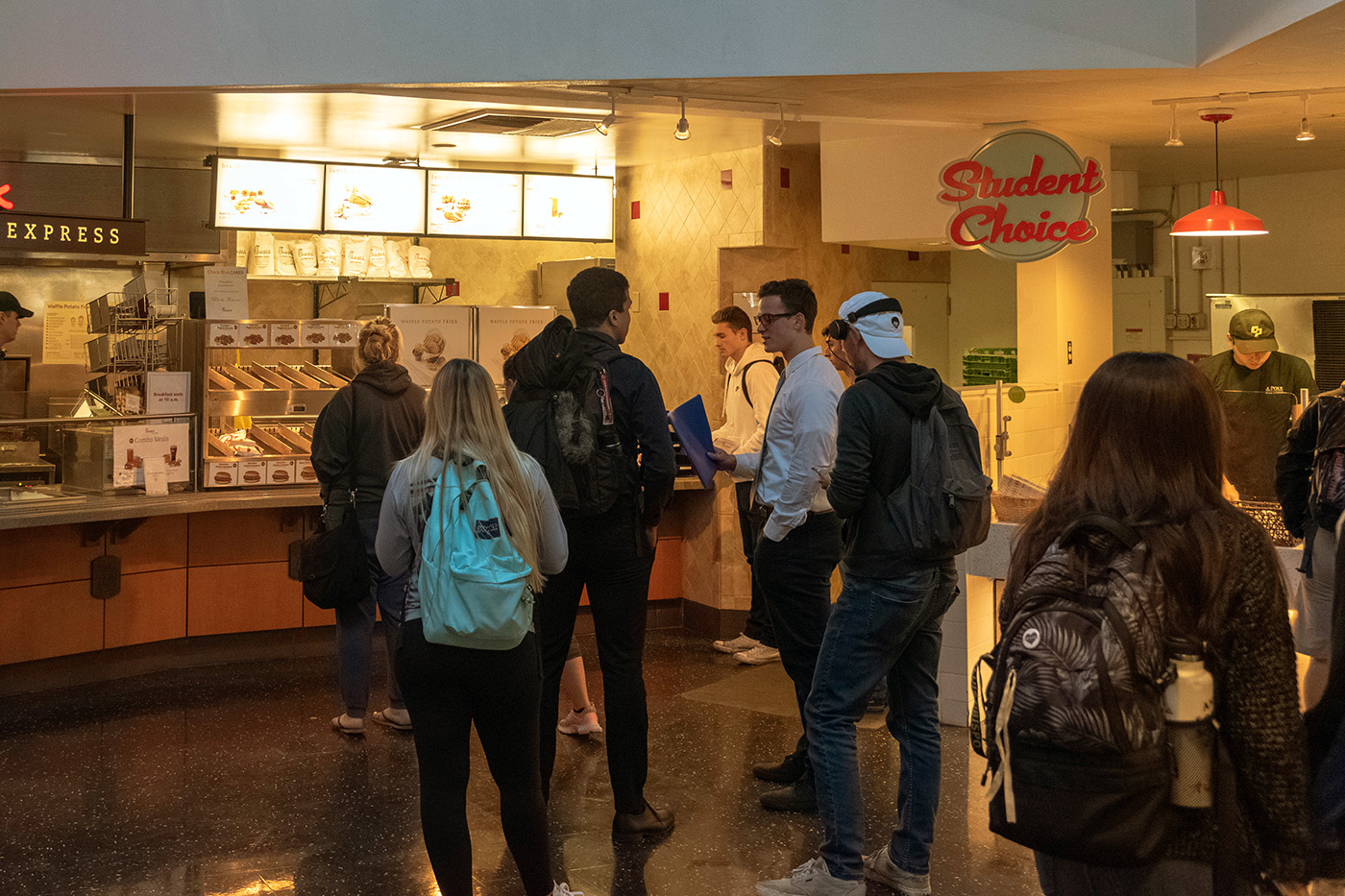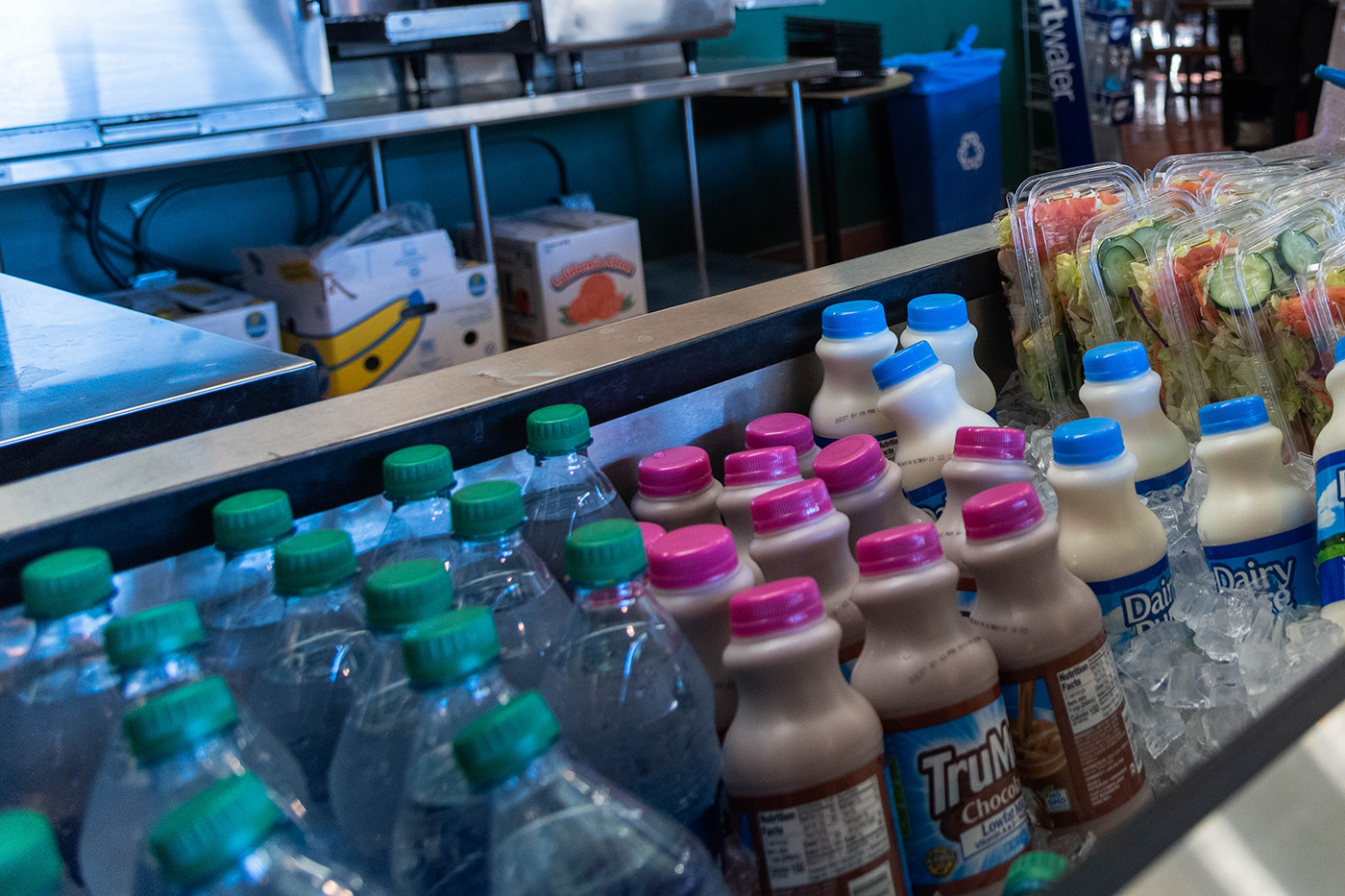Six Cal Poly students are collaborating with eco-friendly bottled water company JUST WATER to reduce plastic waste by replacing all plastic water bottles on campus with boxed water.
Agricultural business freshman Cassondra Richardson reached out to Youth Program Lead of JUST WATER Jackson Hinkle, who was also her former AP environmental science classmate at San Clemente High School.
Richardson said she gleaned inspiration from Hinkle, who spearheaded the switch from plastic water bottles to boxed water in 63 elementary, middle and high schools in the Capistrano Unified School District through Team Zissou, an environmental action club at their high school.
“It’s important that we get young people to lead these movements because we’re the ones who are going to be facing the consequences from plastic consumption and other environmental issues 50 years down the line,” Hinkle said.
According to Richardson, their school district was able to reduce plastic waste by 9,000 pounds in the past year through Hinkle’s leadership.
“If I can have that impact, it inspires me to think on a bigger level,” Richardson said. “If we can do this on a school district level, what’s stopping us from doing this on our campus of nearly 22,000 students?”
Along with four other Cal Poly students – all of whom are freshmen and sophomores – Richardson and environmental management and protection sophomore Channing Simpson jumpstarted their involvement with JUST WATER less than a month ago.
The core group of students is looking to contact Campus Dining about working with JUST water after their 10-year exclusive contract with Coca-Cola, the manufacturer of Dasani water bottles, expires in Summer 2019. The group is still in the beginning stages of their public outreach campaign.

Founded in the U.S. in 2015, JUST WATER aims to sell affordable and sustainably packaged water bottles, with each bottle costing about $1.67, according to the company’s online shopping website. This is 33 cents less than a Dasani water bottle sold at Cal Poly, which retails for $2, according to the Cal Poly Campus Dining website.
Richardson and Simpson said they already contacted the executive boards of a few sororities on campus about possibly collaborating and spreading the mission of JUST WATER.
“To get greek life involved is to reach 20 percent of the campus population, so we wanted to start working with them to inform the greatest number of students as we can all at once,” Simpson said.
The six student ambassadors are planning on presenting the objectives of JUST water to more sororities, fraternities and campus organizations.
Simpson, who is also a student recruitment assistant for Associated Students, Inc. (ASI), said she hopes to get ASI involved in JUST WATER’s efforts.
Despite the students’ goal to bring JUST to campus in the next year, Registered Dietician and Sustainability Coordinator with Campus Dining Kaitlin Gibbons said San Luis Obispo County does not currently recycle cartons, meaning 100 percent of JUST WATER bottles on campus would go straight to landfill.
View this post on Instagram
While the university and the California State University (CSU) system as a whole are working toward a better solution, plastic water bottles are 100 percent recyclable and are not going into the San Luis Obispo County landfill if recycled, Gibbons said.
“For our campus, I don’t think [JUST WATER] would be the most sustainable option at this point,” Gibbons said. “As we move forward, the CSU system has made commitments to reduce the use of single-use plastic water bottles in the next five years, so we look forward to working with any student groups who may have ideas on that.”
According to Gibbons, Cal Poly is leaning toward reusable water bottle options – such as “bring your own cup or water bottle” – because that will not generate any waste.
According to their website, JUST WATER creates their 100 percent recyclable packaging using almost entirely renewable materials. One bottle is made up of 54 percent paper, 28 percent Brazilian sugarcane, 15 percent protective plastic film and 3 percent aluminum. The spring water used is collected entirely from Glens Falls in New York.
The brand is certified by B Corporation and gathers their packaging paper from forests certified by the Forest Stewardship Council. All JUST bottles are BPA-free.
In an interview with the Associated Press, JUST WATER Co-Founder Jaden Smith said he wants to use the bottled water brand not to acquire fame, but to inspire youth to “change the world.” Until Cal Poly can recycle cartons, however, it might not be the right change to make.

